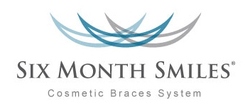Snoring and Sleep Apnea Solutions
Snoring is the harsh sound some people make when they sleep, caused by vibration of the soft palate. It isn’t dangerous (beyond aggravating your sleep partner) and you are probably aware if you are a snorer. But many people suffer from a more serious condition called Obstructive Sleep Apnea (OSA) and don’t even realize it.
With OSA, you stop breathing multiple times during sleep, or your breathing is slowed and inhibited because the airway is partially obstructed. The blockage can be caused by relaxed throat muscles; excessive weight; large uvula, tonsils, or adenoids; nasal congestion; or cysts and tumors.
OSA has a grave impact on your overall health. When you stop breathing your heart stops beating, with devastating effects. OSA worsens high blood pressure, heart disease, Gastroesophageal Reflux Disease (GERD), and a host of other medical conditions.
Your physician can make a diagnosis of OSA. Conventional treatment is a CPAP (Continuous Positive Airway Pressure) machine. However, because the machine is awkward to use, the failure rate is high. Sixty to 70 percent of patients stop using their CPAP machine in the first year or do not use it regularly.
Another alternative for those with sleep apnea – oral appliance therapy. This appliance is a custom-fit mouthpiece to hold your lower jaw forward and slightly ajar. This opens your airway so you breathe naturally, allowing your heart to operate normally. Oral appliance therapy usually eliminates mild to moderate OSA with an excellent success rate. After one year, 80 to 90 percent of patients are still wearing the oral appliance because it is convenient, comfortable, and effective.
Managing sleep apnea allows a dentist to literally save lives. Studies estimate that untreated sleep apnea decreases life expectancy by about eight years. That’s time you could be spending with your grandkids, friends, and the other people you love.
Your physician can make a diagnosis of OSA. Conventional treatment is a CPAP (Continuous Positive Airway Pressure) machine. However, because the machine is awkward to use, the failure rate is high. Sixty to 70 percent of patients stop using their CPAP machine in the first year or do not use it regularly.
Another alternative for those with sleep apnea – oral appliance therapy. This appliance is a custom-fit mouthpiece to hold your lower jaw forward and slightly ajar. This opens your airway so you breathe naturally, allowing your heart to operate normally. Oral appliance therapy usually eliminates mild to moderate OSA with an excellent success rate. After one year, 80 to 90 percent of patients are still wearing the oral appliance because it is convenient, comfortable, and effective.
Managing sleep apnea allows a dentist to literally save lives. Studies estimate that untreated sleep apnea decreases life expectancy by about eight years. That’s time you could be spending with your grandkids, friends, and the other people you love.






